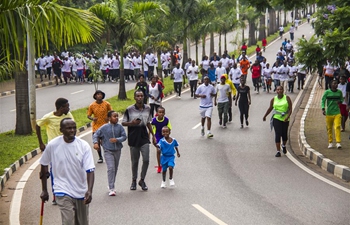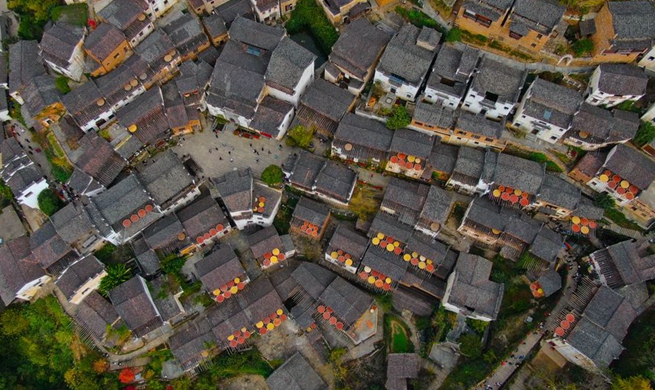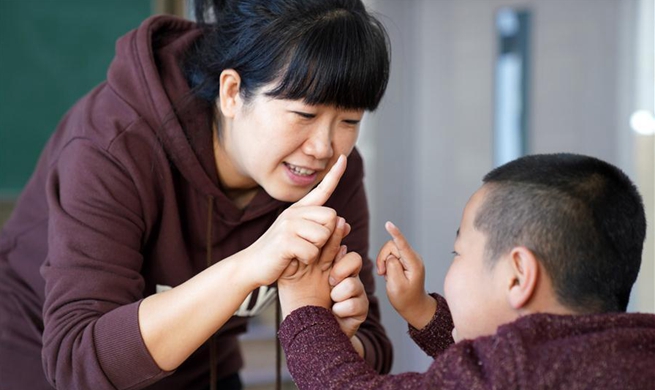KIGALI, Dec. 2 (Xinhua) -- Eliminating mother-to-child transmission of HIV, syphilis and hepatitis is achievable once there is political will, head of World Health Organization (WHO) said here on Monday during an international AIDS conference.
"Eliminating mother-to-child transmission of HIV, syphilis and hepatitis is achievable and you can help provide the key ingredient: political will," Tedros Adhanom Ghebreyesus, Director General of WHO, told first ladies of African countries at a sideline session of the International Conference on AIDS and Sexually Transmitted Infections in Africa (ICASA) which runs from Dec. 2-7.
Eastern and southern Africa are leading the elimination of mother-to-child transmission of HIV with an average of 92 percent pregnant women receiving anti-retroviral therapy, said Tedros.
According to UNAIDS, majority of children living with HIV are infected through mother-to-child transmission during pregnancy, childbirth or breastfeeding.
First ladies from Rwanda, the Republic of Cong, Chad, Niger, Ghana and Botswana were present at the session themed "Leadership of African First Ladies in the Fight against HIV and AIDS", which was aimed to discuss the interconnections between HIV and AIDS and other broader health and development agendas.
In 2002, African first ladies formed the Organization of African First Ladies against HIV/AIDS (OAFLA), with the objective to be a united voice for Africa's most susceptible citizens, women and children living with and affected by HIV and AIDS.
Gender-based violence is holding Africa back from ending AIDS, Rwanda's first lady Jeannette Kagame said at the session.
About 8,000 delegates are attending the conference that focuses on how Africa handles HIV/AIDS and sexually transmitted infections.
An UNAIDS report released in July said the world is lagging behind in its commitment to end the AIDS epidemic among children and adolescents. The pace of progress in reducing new HIV infections among children and expanding access to treatment for children, adolescents and pregnant women living with HIV has slowed significantly and that global targets set for 2018 have been missed, despite important gains being made in some countries, the report showed.

















